Best Sheet Music download from our Library.
Tchaikovsky Symphony No. 6 “Pathètique” , 4th Movement Easy Piano solo with sheet music
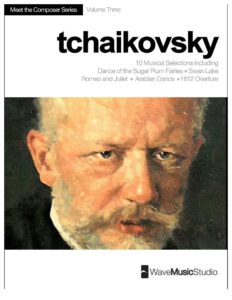
The “Symphony No. 6 in B minor” (Pathetic) Op.74 was composed between February and August 1893. It premiered in St. Petersburg on October 28, 1893 conducted by the composer himself. Pathetic’s name was given by his brother Modest a few days before its premiere.
Please, subscribe to our Library.
If you are already a subscriber, please, check our NEW SCORES’ page every month for new sheet music. THANK YOU!
Exactly the name suggested in Russian is papetichesky, which means pompous, passionate, emotional, not exactly corresponding to the meaning of our word pathetic. Although the composer initially liked the subtitle, two days later he asked his publisher to remove it. However, the work was published under the name Symphonie pathétique.
The work was dedicated to his nephew Vladimir Davidov, known as Bob, son of his sister Alexandra, who died shortly before Tchaikovsky’s trip to America. Although he did not leave any written comment on the meaning of the work, it can be understood that it is a programmatic work, reflecting his own feelings.
In this work, Tchaikovsky managed to bring together the two prevailing trends in symphonic music at the end of the 19th century. On the one hand it was a work of pure music and on the other programmatic. On February 10, 1893, he wrote his nephew Bob a letter announcing that he had started a new programmatic symphony. ‘But that program is full of subjective feelings and often while composing it, my eyes filled with tears.’
It is possible that it is an autobiography of the composer himself, narrating his beginnings, his struggles, triumphs and his final fall. In the description of the work, we will give our own personal version of the meaning of the symphony.
The first movement begins with an adagio. A somber bassoon solo opens the work. A nervous motif will lead to the first theme of the allegro ma non troppo. The second theme of sonata form is a heartfelt melody delivered by the strings with passionate lyricism. A loud burst from the orchestra starts the development section. During it the themes are taken to the maximum expressiveness. The coda ends with the winds intoning a chorale.
It begins by showing us the sad fate of our hero. But he is still young and thinks of a bright future. He looks for love and it seems that he finds it. He expresses the sweetness of the loved one, but with the melancholy that the idea of losing him produces.
We feel the struggles that life brings him, from which he initially manages to emerge triumphant. But he also feels the failures, becoming despondent. But he again awakens his love, leading him to moments of great intimacy and sweetness. Our hero seems to have triumphed, but it will only be an illusion.
The second movement allegro con grazia is written in the form of a lied A, B, A. The first theme is in the form of an elegant waltz. The central part contrasts with its intimate form, using melancholic notes. Then the waltz resumes, ending with a quiet coda in which painful sighs appear.
It seems that love has triumphed, and it presents us with our hero dancing in an elegant and illuminated room with the being of his dreams. In an intermission of the dance, intimate feelings are confessed, expressing their need to love. The dance resumes, but doubts assail him at the end, fearing that his happiness may end.
The third movement allegro molto vivace corresponds to the scherzo. It is composed of a theme in the form of a march. It culminates in a long crescendo based on the march theme that leads into a series of embellishments. The march is then solemnly resumed, bringing it to its climax. A brilliant coda closes the movement.
Our hero has reached his peak. Dragged by the force of love, it seems that nothing and no one can stop him. His march is powerful, overwhelming.
He ends with the mournful walking tragic. The first theme shows his bitterness in descending scales. The second theme also expresses sadness, but with a feeling of resignation. The call of destiny is dragging him towards death. In the final coda the notes descend, each time lower in a devastating way, until ending only with the notes of the cellos and double basses.
But suddenly everything has changed. Our hero has lost the most appreciated thing, love. The feeling of loneliness invades him. He feels destroyed, without strength at all. A comforting vision comes before him, but he finds himself unable to save himself. His wails are getting louder. Memories of his past happiness drive him to despair. Fate drags him towards his fatal outcome, from which he cannot escape. He slowly introduces himself into the enigmatic shadows of death.
Tchaikovsky
Tchaikovsky‘s romantic melodies, his passionate life, have captivated the people for several generations. An easy-to-understand sentimental music has made him the most popular Russian musician.
The most outstanding member of the Moscow school continues in a certain way the work carried out by the nationalists, but Westernizing his style, giving it a certain academicism. This does not prevent her from clearly expressing his feelings that appear during his tormented life.
Pyotr Ilyich Tchaikovsky (1840-1893) was born on May 7, 1840, in Kamsko-Votkinsk, a metallurgical center east of Moscow. His father was a mining engineer and the family lived comfortably. At the age of 10 he entered the Saint Petersburg School of Jurisprudence, completing his studies in 1859.
First he was an official of the Ministry of Justice. In September 1862, the Russian Music Society opened a Conservatory in Saint Petersburg under the direction of Anton Rubinstein. Tchaikovsky signs up and begins taking composition classes. He finally decides to leave his civil service job and dedicate himself to music.
In 1866, he moved to Moscow, following the advice of Anton Rubinstein, to take charge of the harmony lessons at the Conservatory that had just been founded, taking the Saint Petersburg Conservatory as a model and under the direction of his brother Nikolai Rubinstein.
A few days after the play’s premiere of the 6th Symphony, Tchaikovsky died of cholera on November 6, according to the official version of events. But it seems that the truth was different, hidden by the biography that his brother Modest made, covering up the real facts.
The investigations of the Russian musicologist Alexandra Orlova show that the truth had been very different. Tchaikovsky committed suicide by poisoning himself with arsenic.
In the fall of 1893 a terrible misfortune occurred in the life of the composer. Duke Stenbok-Fermor was annoyed at the particular attention Tchaikovsky showed his young nephew. He then wrote a letter of accusation against the composer to Jacobi, a high official in the bureaucracy, for transmission to the Tsar. The scandal was served. To avoid this, Jacobi made the decision to form a court of honor at the School of Jurisprudence, made up of former companions of the composer. They asked him to take his own life.

It seems that the arsenic was delivered to him on October 31 by a colleague of his. On November 2, he took it at lunchtime, not calling the doctor until November 3, when the action of the poison was well advanced. Doctors certified his death from cholera. As confirmation, his brother Modest published a note recounting the event falsely. On November 7, his companions from the School of Jurisprudence celebrated a Requiem in his honor.
Best Sheet Music download from our Library.
Browse in the Library:
| Artist or Composer / Score name | Cover | List of Contents |
|---|---|---|
| Waltz – Noce i Dnie OST (Nights and days) | ||
| Waltz For Debby Bill Evans (Musescore File).mscz | ||
| Waltz For Debby – Bill Evans (Complete) (Musescore File).mscz | ||
| Waltz For Debby – Bill Evans (Musescore File).mscz | ||
| Waltz From The Balet ‘coppelia’ (Musescore File).mscz | ||
| Waltz In A Minor F. Chopin (Musescore File).mscz | ||
| Waltz In E Minor Op. 39 No. 4 – Johannes Brahms (Musescore File).mscz | ||
| Ward-Jackson’s Gymnastics For The Fingers And Wrist – based On Anatomical Principles (By Edwin Ward-Jackson) 1874 |
 |
|
| Watermark (Musescore File).mscz | ||
| Watermelon Man (Musescore File).mscz | ||
| Waters of Irrawaddy (Hans Zimmer) from the movie Beyond Rangoon | ||
| Wave – Vou Te Contar Jobim (Musescore File).mscz | ||
| Wayne Shorter – Ana Maria |
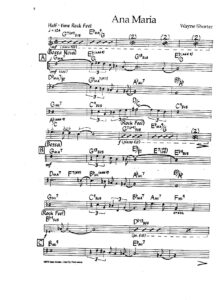 |
|
| Wayne Shorter Artist Transcriptions The New Best of |
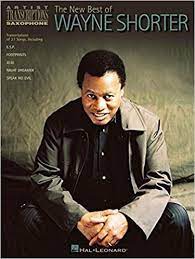 |
Wayne Shorter Artist Transcriptions The New Best of |
| Wayward Sisters – Nocturnal Animals OST (Abel Korzeniowski) | ||
| We are the champions (Queen) | ||
| We Are The World Songbook |
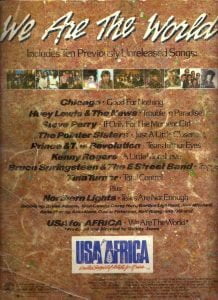 |
we are the world |
| We Shall Overcome Essays on a Great American Song (Book) by Victor B.Bobetsky |
 |
|
| We Wish You A Merry Christmas | ||
| We Wish You A Merry Christmas – Anonymous (Guitar arr. sheet music with TABs) | We Wish You A Merry Christmas – Anonymous (Guitar arr. sheet music with TABs) | |
| We Wish You A Merry Christmas – Guitar TABlature |
 |
|
| We Wish You A Merry Christmas (piano solo sheet music) |
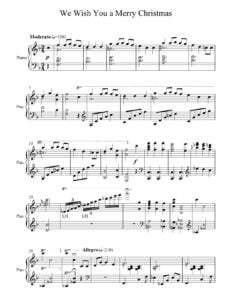 |
|
| We Wish You A Merry Christmas Trad. English Christmas carol |
 |
|
| We Wish You A Merry Christmas Trad. English Christmas carol.mscz | ||
| Weather Report – A Remark You Made (Guitar TABS) | Weather Report – A Remark You Made (Guitar TABS) | |
| Weather Report – The best of Weather Report (Full score) |
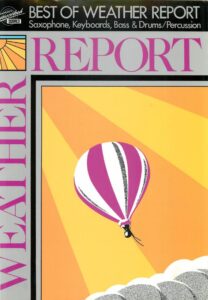 |
Weather Report – The best of Weather Report (Full score) |
| Weather Report Best Of Weather Report Band Score Book |
 |
Best Of Weather Report Us Book |
| Weber – Der Freischütz (Ouvertüre) Piano Solo arr |
 |
|
| Weber – Der Freischütz (Ouvertüre) Piano Solo arr.mscz | ||
| Weber – Der Freischutz Overture piano solo arr. |
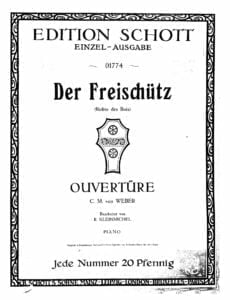 |
|
| Weber op 65 Invitation to the Dance (Invitation to the Waltz) | ||
| Weber’s Last Thought – C.M. von Weber |
 |
|
| Wedding Collection for Piano Solo |
 |
Wedding Collection for Piano Solo |
| Wednesday Morning 3 A M – Simon & Garfunkel (Musescore File).mscz | ||
| Weight Of The World – Nier Automata Piano Collections (Musescore File).mscz | ||
| Weissenberg En Avril A Paris (April In Paris) Charles Trenet |
 |
|
| Well Tempered Praise – Mark Hayes piano |
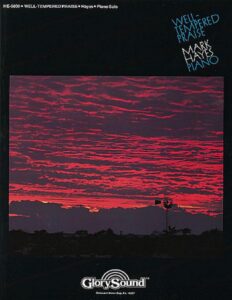 |
Well Tempered Praise – Mark Hayes piano |
| Well Tempered Praise II by Mark Hayes |
 |
Well Tempered Praise II by Mark Hayes |
| Well Tempered Praise III – Mark Hayes piano |
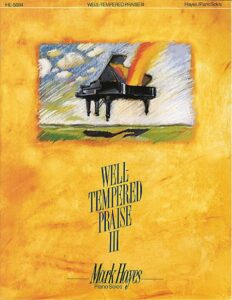 |
Well Tempered Praise III – Mark Hayes piano |
| Well Tempered Praise Vol 4 Gospel Classics by Mark Hayes |
 |
Well Tempered Praise Vol 4 Gospel Classics by Mark Hayes |
| Well-Known Piano Solos – How To Play Them (By Charles W Wilkinson) (1915) |
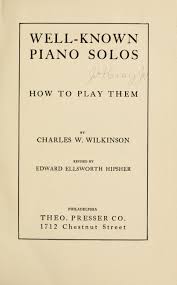 |
|
| Wes Montgomery Wine And Roses By Henry Mancini Solo Guitar |
 |
|
| Wes Montgomery – Unit 7 Solo Transcription | Wes Montgomery – Unit 7 Solo Transcription | |
| Wes Montgomery – Artist Transcriptions for guitar by fred Sokolow |
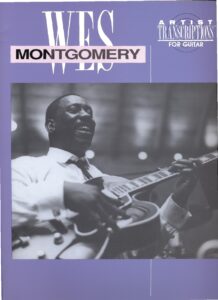 |
Wes Montgomery – Artist Transcriptions for guitar by fred Sokolow |
| Wes Montgomery – Au Privave transcription |
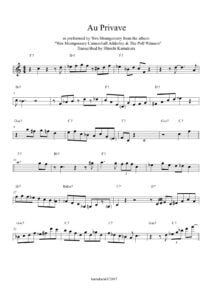 |
|
| Wes Montgomery – Days of wine and roses transcription |
 |
|
| Wes Montgomery – Take The A Train transcription |
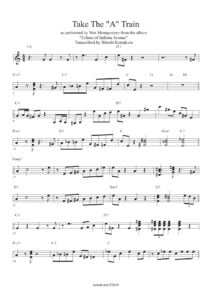 |
|
| Wes Montgomery Essential Jazz Lines (Mel Bay) |
 |
Wes Montgomery Essential Jazz Lines (Mel Bay) |
| Wes Montgomery Jazz Guitar Artistry arr. by Zafar Soood with TABs |
 |
Wes Montgomery Jazz Guitar Artistry arr. by Zafar Soood |
| Wes Montgomery Jazz No Blues Guitar |
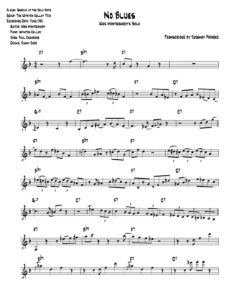 |
|
| Wes Montgomery The Early Years (Mel Bay) Jazz Guitar Solos Tablature |
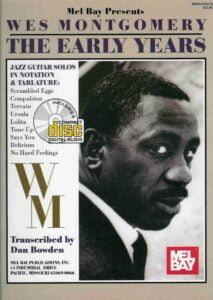 |
Wes Montgomery The Early Years (Mel Bay) Jazz Guitar Solos Tablature |
| Wes Montgomery The End Of A Love Affair Guitar Tabs |
 |
|
| West Side Story – Somewhere (Voice and Piano) Leonard Bernstein | West Side Story – Somewhere | |
| West Side Story (The Musical) Vocal Score Arthur Laurents, Leonard Bernstein, Stephen Sondheim |
 |
West Side Story Vocal Score – Leonard Bernstein |
| Westlife – Cant Lose What You Never Had | ||
| Westlife – Flying Without Wings | ||
| Westlife – If I Let You Go | ||
| Westlife – Mandy | ||
| Westlife – You Raise Me Up Guitar arr. with TABs | Westlife – You Raise Me Up Guitar arr. with TABs | |
| Westlife Unbreakable Greatest Hits |
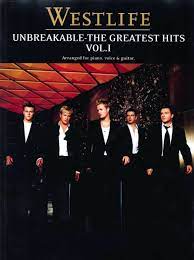 |
 |
| Wet Wet Wet – Love Is All Around | ||
| Wexford Carol (Musescore File).mscz | ||
| Wham , George Michael And Me By Andrew Ridgeley (Book) |
 |
|
| Wham Make It Big Piano Vocal Guitar Chords |
 |
Wham Make It Big Piano Vocal Guitar Chords |
| What a Wonderful World – Thiele & Weiss |
 |
|
| What a wonderful world – Louis Armstrong.mscz | ||
| What A Wonderful World (Lead Sheet With Lyrics ) Musescore File.mscz | ||
| What a Wonderful World (lead sheet) – Thiele & Weiss | What a Wonderful World (lead sheet) – Thiele & Weiss | |
| What A Wonderful World (Musescore File).mscz | ||
| What a wonderfull World (Jazz Standard) Guitar Tablature TABs | What a wonderfull World (Jazz Standard) Guitar Tablature TABs | |
| What A Wonderlful World (Lead Sheet) (Musescore File).mscz | ||
| What You’re Made Of – Même Si (Lucie Silvas – Grégory Lemarchal | ||
| What’s That Sound An Introduction To Rock And Its History By John Covach And Andrew Flory (Book) |
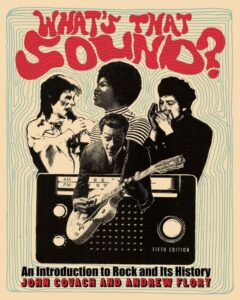 |
|
| When A Man Loves A Woman Calvin Lewis & Andrew Wright |
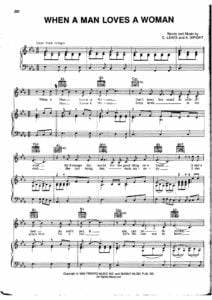 |
|
| When Almonds Blossomed – Giya Kancheli | When Almonds Blossomed – Giya Kancheli-1 | |
| When Almonds Blossomed (Musescore File).mscz | ||
| When I Fall In Love – Victor Young (Bill Evans Ver.) (Musescore File).mscz | ||
| When I fall in love Bill Evans version | When I fall in love Bill Evans version | |
| When I’m Sixty-Four (Beatles) | ||
| When Lights Are Low (Benny Carter) As Played By Miles Davis (Musescore File).mscz | ||
| When The Saints Go Marchin In – Gospel Traditional Folk song (Piano solo with Lyrics) | When The Saints Go Marchin In – Gospel Traditional Folk song (Piano solo with Lyrics) SAMPLE | |
| When The Saints Go Marching In – Fun piano arrangement | When The Saints Go Marching In – Fun piano arrangement | |
| When you told me you loved me (Jessica Simpson) | ||
| When You Wish Upon A Star (Musescore File).mscz | ||
| When You Wish Upon A Star (From The Film Pinocchio) Easy Piano Solo Arr. Sheet Music (Musescore File).mscz | ||
| When You Wish Upon A Star (Leigh Harline and Ned Washington) from Pinocchio Jazz Piano Solo arr. sheet music | When You Wish Upon A Star (Leigh Harline and Ned Washington) from Pinocchio Jazz Piano Solo arr. sheet music | |
| When You Wish Upon A Star (Solo Piano Arr ) David Dinh |
 |
|
| When You’re Gone (Avril Lavigne) | ||
| When You’re Smilling (Musescore File).mscz | ||
| Where have all the-flowers gone (guitar & voice) | Where-have-all-the-flowers-gone (guitar & voice) | |
| While your lips are still red (Nightwish) | ||
| Whistling away the dark (Darling Lili OST) Henry Mancini | ||
| White Album 2 Ending 3 Sayonara No Koto |
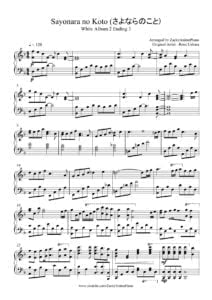 |
|
| White Christmas -Irving Berlin – Piano sheet music |
 |
|
| White Christmas Irving Berlin (Musescore File).mscz | ||
| White Christmas Medley (Liberace) | ||
| White skin like the moon (Jane Eyre 2011 OST) Dario Marianelli | ||
| Whitesnake – Here I Go Again |
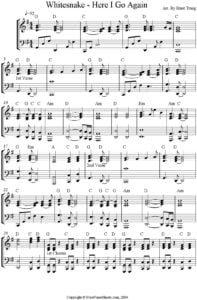 |
|
| Whitesnake Guitar Collection with TABs |
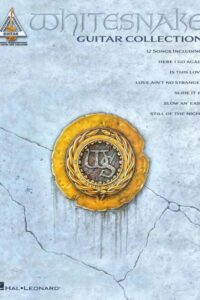 |
Whitesnake Guitar Collection with TABs |
| Whitesnake Is This Love Piano Vocal Guitar Chords | Whitesnake Is This Love Piano Vocal Guitar Chords | |
| Whitney Houston – Jesus Loves Me Sheet Music |
 |
|
| Whitney Houston The Best Of |
 |
Whitney Houston, The Best Of |
| Whitney Houston – I Will Always Love You | ||
| Whitney Houston – It’s Easy To Play Whitney Houston |
 |
Whitney Houston – It’s Easy To Play Whitney Houston |
| Whitney Houston – Saving All My Love For You | ||
| Whitney Houston – The Greatest Hits |
 |
Whitney – The Greatest Hits |
| Whitney Houston – The Greatest Love Of All | ||
| Whitney Houston I will always love you | Whitney Houston – I Will Always Love You | |
| Whitney Houston My Love Is Your Love |
 |
Whitney Houston My Love Is Your Love |
| Who wants to live forever (Queen) | ||
| Whole New World Sheet Music, A – Alan Menken |
 |
|
| Why Jazz? A Concise Guide – Kevin Whitehead (book) |
 |
|
| Wicked The Musical Sheet Music Full song Book Music and lyrics by Stephen Schwartz |
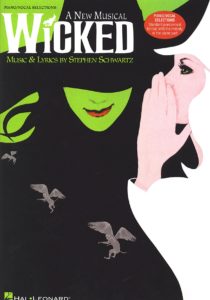 |
Wicked the musical contents — Wicked The Musical Sheet Music Full Book |
| Wieck – Piano Studies | ||
| Wiklund Adolf Fran Mitt Fonster (From my Window) Piano Solo |
 |
|
| Wild – Fantasy On Gershwin’s Porgy And Bess | Wild Fantasy On Gershwin’s Porgy And Bess | |
| Wild Gershwin Seven Virtuoso Etudes | Wild Gershwin Seven Virtuoso Etudes | |
| Wild, Earl – Gershwin Étude No. 4 based on Embraceable You Piano | Wild, Earl – Gershwin Etude No. 4 based on Embraceable You Piano | |
| Wilde Theme (Debbie Wiseman) | ||
| Wilhelm Kempff Musik Des Barock Und Rokoko – Nr. 13 Menuett G-Moll G.F. Händel (Musescore File).mscz |
